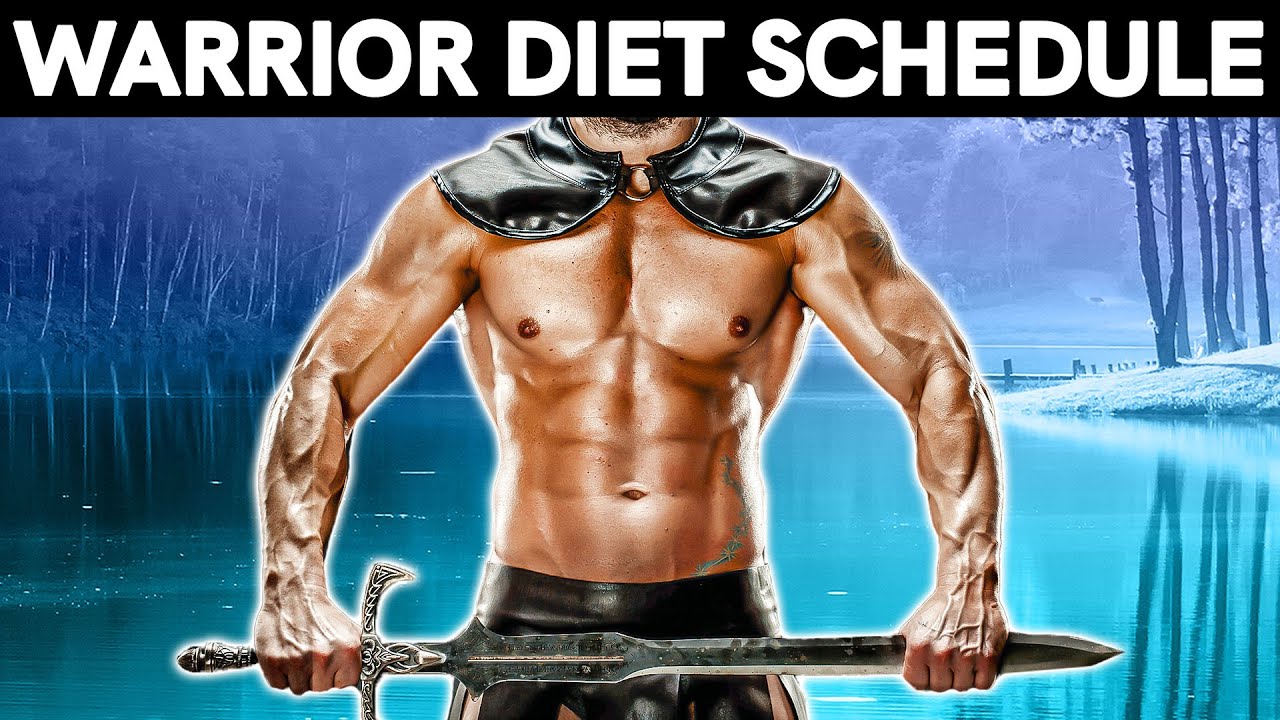Understanding the Warrior Diet
Origins of the Warrior Diet
The Warrior Diet is inspired by the eating habits of ancient warriors, who reportedly consumed minimal food during the day and feasted on a large meal in the evening. The modern version of the diet was popularized by fitness expert Ori Hofmekler in his book “The Warrior Diet,” published in 2001.
Principles of the Warrior Diet
The Warrior Diet follows a simple premise: fast during the day and feast at night. The typical eating pattern involves fasting for 20 hours and consuming all calories within a 4-hour eating window, usually in the evening. During the fasting period, dieters are allowed to consume small amounts of raw fruits and vegetables, as well as fluids like water, herbal tea, and black coffee.
The Science Behind the Warrior Diet
Intermittent Fasting
The Warrior Diet is a form of intermittent fasting, which has been studied for its potential health benefits. Intermittent fasting involves cycling between periods of eating and fasting, which can lead to various metabolic changes, including increased fat burning, improved insulin sensitivity, and reduced inflammation.
Hormonal Changes
Fasting triggers changes in hormone levels, including increased production of human growth hormone (HGH) and norepinephrine, which can promote fat loss and muscle preservation. Some proponents of the Warrior Diet claim that fasting enhances mental clarity, focus, and energy levels, although scientific evidence supporting these claims is limited.
Pros and Cons of the Warrior Diet
Pros
Simplicity
The Warrior Diet is straightforward and easy to follow, requiring minimal meal planning and preparation.
Potential Weight Loss
By restricting calorie intake to a short eating window, the Warrior Diet may help individuals create a calorie deficit and lose weight over time.
Flexibility
The Warrior Diet offers flexibility in food choices and meal timing, allowing individuals to adapt the eating pattern to their lifestyle and preferences.
Cons
Potential Hunger and Fatigue
Fasting for long periods may lead to hunger, fatigue, and irritability, especially during the initial adjustment phase.
Nutritional Deficiencies
Limited food intake during the fasting period may result in inadequate nutrient intake, potentially leading to deficiencies over time.
Not Suitable for Everyone
The Warrior Diet may not be suitable for individuals with certain medical conditions, such as diabetes, eating disorders, or metabolic disorders.
Getting Started with the Warrior Diet
Beginner’s Guide
Start Slowly
If you’re new to intermittent fasting, ease into the Warrior Diet by gradually increasing the fasting window over time. Begin with a 12-hour fast and gradually extend it as your body adjusts.
Stay Hydrated
Drink plenty of water and other non-caloric fluids during the fasting period to stay hydrated and reduce hunger.
Focus on Nutrient-Dense Foods
When it’s time to eat, prioritize nutrient-dense foods like lean proteins, fruits, vegetables, whole grains, and healthy fats to ensure you’re meeting your nutritional needs.
Listen to Your Body
Pay attention to hunger cues and adjust your eating window accordingly. If you feel excessively hungry or fatigued, consider shortening the fasting window or including small snacks during the day.
Be Patient
Allow your body time to adapt to the new eating pattern, and don’t expect immediate results. Weight loss and other health benefits may take time to manifest.
FAQs about the Warrior Diet
Is the Warrior Diet safe for everyone to try?
The Warrior Diet may not be suitable for everyone, particularly individuals with certain medical conditions or dietary restrictions. It’s essential to consult with a healthcare professional before starting any new diet or fasting regimen, especially if you have underlying health concerns.
Can I exercise while following the Warrior Diet?
Yes, you can exercise while following the Warrior Diet. However, it’s essential to listen to your body and adjust your workout intensity and timing based on how you feel during the fasting period. Some individuals may prefer to exercise during the feeding window to optimize performance and recovery.
Will the Warrior Diet help me lose weight?
The Warrior Diet may help some individuals lose weight by creating a calorie deficit and promoting fat burning. However, weight loss results can vary depending on factors such as overall calorie intake, meal composition, physical activity level, and individual metabolism.
Can I drink coffee or tea during the fasting period?
A4: Yes, you can drink black coffee, herbal tea, and other non-caloric beverages during the fasting period on the Warrior Diet. However, it’s essential to avoid adding sugar, milk, cream, or other caloric additives that may break the fast.
Are there any potential side effects of the Warrior Diet?
A5: Some individuals may experience side effects such as hunger, fatigue, irritability, or difficulty concentrating during the fasting period, especially initially. These symptoms typically improve as the body adapts to the new eating pattern.
Can I follow the Warrior Diet if I have diabetes or other medical conditions?
A6: Individuals with diabetes or other medical conditions should exercise caution when trying the Warrior Diet or any other fasting regimen. It’s essential to consult with a healthcare professional for personalized guidance and monitoring, as fasting may affect blood sugar levels and require adjustments to medication or insulin doses.
Is the Warrior Diet suitable for athletes or individuals with high physical activity levels?
A7: The Warrior Diet may not be optimal for athletes or individuals with high physical activity levels who require consistent energy intake throughout the day to support performance and recovery. However, some athletes may find success with modified versions of intermittent fasting that align with their training and competition schedule.
Conclusion
The Warrior Diet is a form of intermittent fasting that involves fasting for most of the day and consuming all calories within a short eating window. While it may offer simplicity, flexibility, and potential weight loss benefits, it’s essential to consider the potential drawbacks and suitability for individual needs and preferences. Before starting the Warrior Diet or any other fasting regimen, consult with a healthcare professional or registered dietitian for personalized guidance and recommendations tailored to your unique health goals and circumstances. With careful planning, patience, and mindful eating, the Warrior Diet may be a viable option for some individuals seeking to improve their health and well-being through intermittent fasting.
- How Bananas Affect Diabetes and Blood Sugar Levels - April 18, 2024
- Proteolytic Enzymes: How They Work, Benefits and Sources - April 18, 2024
- Is Nutella Healthy? Ingredients, Nutrition and More - April 18, 2024





